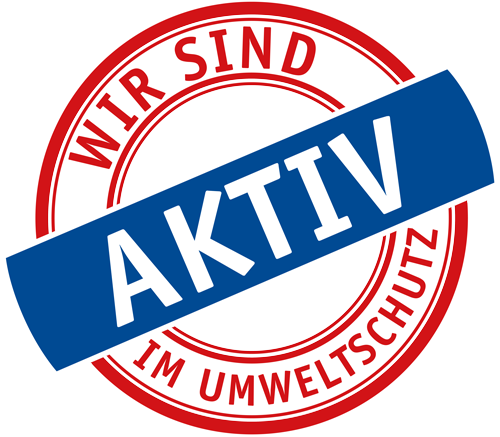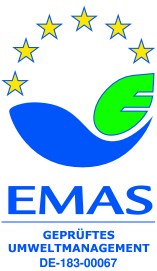
Our environmental management
Due to its business fields, there is already an inseparable bond between Energiequelle GmbH and the issue of environmental and nature protection. At our main sites in Kallinchen and Bremen, we introduced an environmental management system in accordance with the requirements of the EMAS III Regulation in 2018.
EMAS is the Community System developed by the European Community for voluntary environmental management and auditing (Eco-Management and Audit Scheme): EMAS Regulation (EC) No. 1221/2009.
With Regulation (EU) 2017/1505, the EU Commission decided to amend Annexes I to III of the EMAS Regulation in order to maintain the compatibility of EMAS with the environmental management system in accordance with ISO 14001:2015 and to improve the user-friendliness of EMAS.
In consultation with the Member States, the EU Commission also revised the reporting requirements set out in Annex IV of the EMAS Regulation. The revised version of Annex IV “Environmental reporting” entered into force with Regulation (EU) 2018/2026 on 09/01/2019.
Why did we choose EMAS?
EMAS is the most advanced system for sustainable environmental management. The requirements go beyond a simple management system, and also cover improvement exceeding the environmental law requirements.
We have undertaken to continuously improve our environmental performance and involve all our employees in this. Our environmental management is established practice and reinforces the identification of every individual with the environmental protection interests of Energiequelle GmbH.

Environmental Policy
Energy with a future. This is the guiding principle of Energiequelle GmbH.
We have been implementing projects in the renewable energies sector since 1997. We develop, construct and operate wind energy and photovoltaic systems, substations and energy storage systems in Germany and Europe. We also work on innovative energy supply solutions, repower older systems and distribute sustainably produced electricity to end customers via our subsidiary firm eqSTROM. Over 400 employees in Germany, France, Finland and Poland are committed to a successful energy transition every day – passionate, courageous and human.
Not only do we actively contribute to the achievement of the climate protection targets set by the Federal Government and to leaving the environment intact for posterity, but we undertake to reducing the environmental impact of our activities to a minimum. At the same time, we optimise the positive environmental effects of our business activity and as such make our contribution to the realisation of a sustainable energy supply. Energiequelle has developed its own charging infrastructure, thus promoting climate-friendly electromobility.
With the introduction of an environmental management system pursuant to EMAS in 2018, the binding legislative and voluntary obligations we have undertaken for the continuous improvement of our environmental performance have become measurable and optimised.
We take responsibility with regard to environmental protection for our services and business activities. We prefer service providers and suppliers whose methods and technologies are sustainable and resource-friendly. We cover the energy requirements in our office with energy from photovoltaics, wind energy and CHP units. Waste is avoided as much as possible.
The management considers the sustainable handling of resources, the involvement of citizens and interested parties as the foundation for long-term economic success. In order to secure this success, employees are continually trained and qualified. The constant changes in legislation and legal norms are covered in training. Compliance with statutory requirements is a given for us.
We take responsibility. Out of conviction.
Our environmental declaration
Our environmental declaration provides a report on the development of our company, results already achieved and major milestones. We inform readers about our environmental programme and the key environmental figures. The focus is on the key indicators of energy and material efficiency, water consumption, waste generation, land usage and the total emissions of greenhouse gases.



